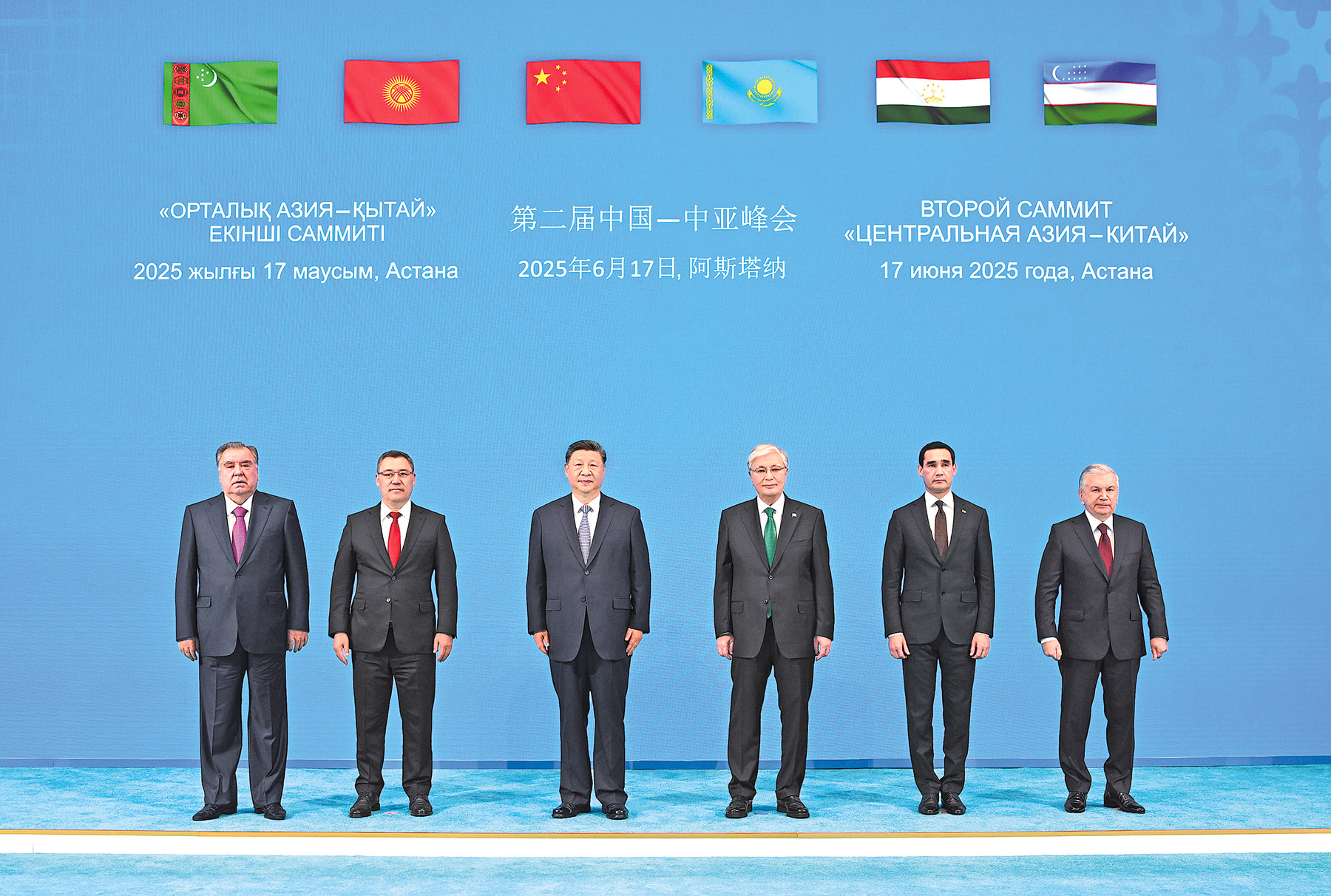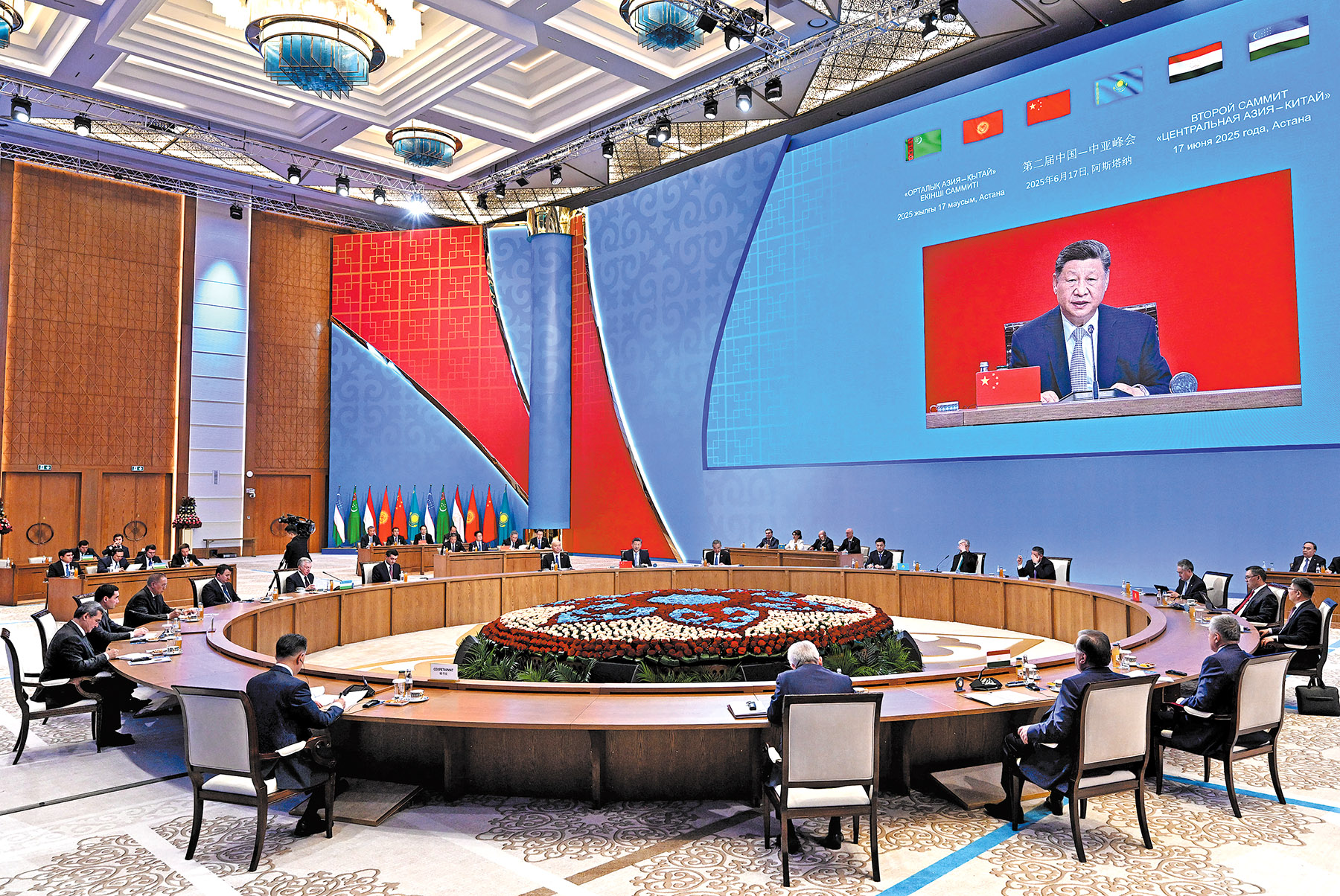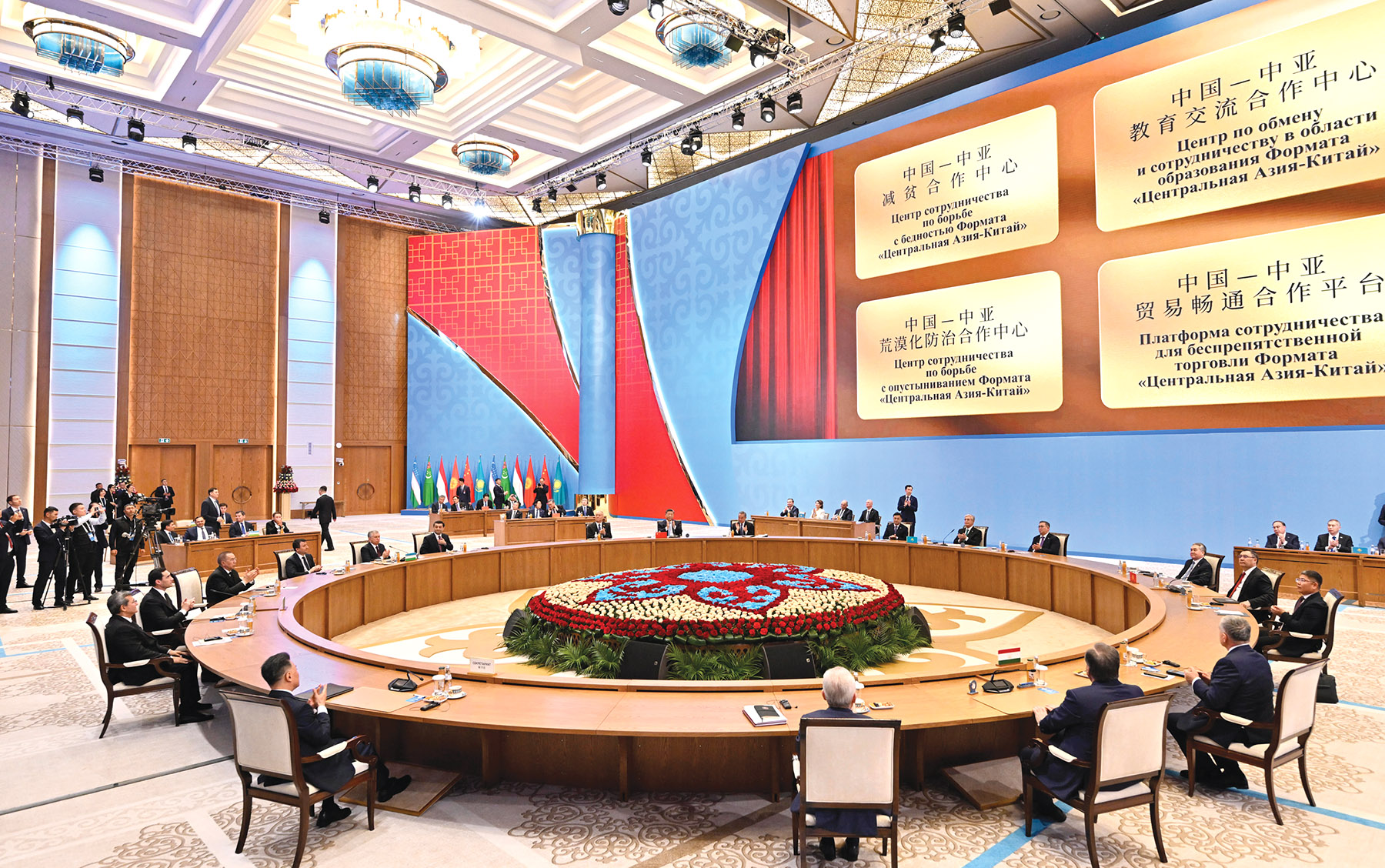With a milestone treaty, China and five Central Asian nations commit to lasting friendship and modernization

China and the five Central Asian countries signed a treaty of permanent good-neighborliness and friendly cooperation on June 17, enshrining the principle of everlasting friendship across generations in the legal form.
President Xi Jinping signed the document with leaders of Kazakhstan, Kyrgyzstan, Tajikistan, Turkmenistan and Uzbekistan in Astana, the capital of Kazakhstan, where they gathered for the second China-Central Asia Summit.
Addressing the summit, Xi said that China-Central Asia cooperation is rooted in more than 2,000 years of friendly exchanges, cemented by solidarity and mutual trust, cultivated through more than three decades of diplomatic ties, and taken forward through openness and win-win cooperation of the new era.
As the world has entered a new period of turbulence and transformation, Xi said a strong belief in fairness and justice and an unyielding commitment to mutual benefit and win-win cooperation are the only ways to maintain global peace and achieve common development.
“There is no winner in tariff wars or trade wars. Unilateralism, protectionism and hegemonism will surely backfire while hurting others,” he said.
“I always maintain that history should move forward, not backward; and the world should be united, not divided. Humanity must not regress to the law of the jungle. Instead, we should build a community with a shared future for mankind,” Xi added.
The president emphasized that building on the collective efforts over the years, the nations have forged a China-Central Asia Spirit of “mutual respect, mutual trust, mutual benefit and mutual assistance for the joint pursuit of modernization through high-quality development”.

He called for carrying forward the China-Central Asia Spirit, enhancing cooperation with renewed vigor and more practical measures, promoting high-quality development of the Belt and Road Initiative (BRI), and forging ahead toward the goal of a community with a shared future for the region.
“China consistently takes Central Asia as a priority in its neighborhood diplomacy. With a firm belief in an amicable, secure and prosperous neighborhood as well as a strong dedication to amity, sincerity, mutual benefit and inclusiveness, China interacts with Central Asian countries on basis of equality and sincerity,” Xi said.
He highlighted the need to optimize the China-Central Asia cooperation framework to make it more results-oriented, more efficient and more deeply integrated, with collaboration focused on smooth trade, industrial investment, connectivity, green minerals, agricultural modernization and personnel exchanges.
To promote relevant cooperation, China will provide a grant of 1.5 billion yuan ($209 million) to Central Asian countries this year to be used in livelihood and development projects high on their agenda, Xi said, adding that China will also provide 3,000 training opportunities to Central Asian countries over the next two years.
After the summit ended, Xi returned to Beijing on June 18. In less than 48 hours in Astana, the president attended more than 10 bilateral and multilateral events, during which he renewed traditional friendship, discussed ways of promoting cooperation, and drew the blueprint for development with the heads of state of the five Central Asian countries.
The five heads of state from Central Asia who attended the summit were Kazakh President Kassym-Jomart Tokayev, Kyrgyz President Sadyr Japarov, Tajik President Emomali Rahmon, Turkmen President Serdar Berdimuhamedov and Uzbek President Shavkat Mirziyoyev.
They commended the China-Central Asia mechanism as an important platform for promoting dialogue and cooperation between the two sides and driving economic and social development in Central Asian countries. In a world full of uncertainties, the strategic significance of the China-Central Asia cooperation mechanism is becoming more prominent, as China’s prosperity and strength are benefiting neighboring countries, they said.

Noting that China is a strategic partner and a true friend that Central Asian countries can rely on permanently, the leaders said they look forward to close and all-round cooperation with China to make the China-Central Asia mechanism a model of regional cooperation.
They pledged to closely coordinate and cooperate with China, firmly uphold the principles of free trade and the multilateral trading system, and to jointly safeguard international fairness and justice.
The leaders of China and Central Asian countries signed the Astana Declaration of the second China-Central Asia Summit. They also witnessed the launch of three cooperation centers on poverty reduction, education exchange and desertification prevention and control, as well as a cooperation platform on smooth trade under the China-Central Asia cooperation framework. It was decided at the summit that China will host the third China-Central Asia Summit in 2027.
The China-Central Asia mechanism was launched in 2020, and the inaugural China-Central Asia Summit was held in Xi’an, Shaanxi province in May 2023, during which the two sides agreed to take turns to host the biennial summit.
Among the five Central Asian countries, Kazakhstan, Kyrgyzstan and Tajikistan share borders with China of up to 3,000 kilometers long.
China is Central Asia’s top trading partner and a major source of investment. According to China’s General Administration of Customs, the nation’s total trade with the five Central Asian countries reached $94.8 billion in 2024.
By 2024, China’s direct investment stock in the five Central Asian nations surpassed $17 billion, in sectors like infrastructure, new energy, and oil and gas extraction.
Djoomart Otorbaev, former prime minister of Kyrgyzstan, said the second China-Central Asia Summit marks a pivotal event in regional politics and economics, shaping cooperation priorities going forward among the participating nations.
“With a challenging geopolitical context, Central Asian countries have an exceptional opportunity to enhance their multi-vector foreign policy and broaden their economic connections. The second summit offers them several significant opportunities,” said Otorbaev, who is currently a professor at the Belt and Road School of Beijing Normal University, in an opinion piece published by China Global Television Network.

Speaking at a news briefing in Astana late on June 17, Chinese Foreign Minister Wang Yi said that a highlight of the trip was Xi’s announcement that China and Central Asian countries have explored and articulated the China-Central Asia Spirit.
The signing of the treaty of permanent good-neighborliness and friendly cooperation was the most significant innovation of the summit, as it “sets a new milestone in the history of relations among the six countries”, Wang said.
“This will lay a solid foundation for the long-term and steady development of relations between China and Central Asian countries,” he added.
Experts said the China-Central Asia Spirit, built on China’s commitment to the principle of mutual benefit in a good-neighborly and friendly policy setting, establishes a solid basis for ushering in deeper collaboration and enduring friendship between China and Central Asian countries.
Najla Alzarooni, a researcher at the College of Public Policy of the University of Sharjah in the United Arab Emirates, said the China-Central Asia Spirit, aiming at the joint pursuit of modernization through high-quality development, is needed, and is logical for the region.
“President Xi’s speech reflects China’s consistent effort to contribute to global norms in a more inclusive and cooperative way,” she said.
The articulation of the China-Central Asia Spirit laid a robust foundation for a new era of modernization through high-quality development, said Khalid Taimur Akram, executive director of the Pakistan Research Center for a Community with Shared Future in Islamabad.
Sun Weidong, secretary-general of the Secretariat of the China-Central Asia Mechanism, told reporters after the summit that leaders of the six countries recognize the strategic significance of the region and the importance of further deepening multilateral cooperation based on the principles of equality, mutual respect and mutual benefit.
Renat Bekturov, governor of the Astana International Financial Center, said the summit marks a pivotal moment in regional diplomacy, underscoring the deepening strategic partnership between China and Central Asian nations.
“President Xi’s speech offers a clear and forward-looking road map for deepening global cooperation under the BRI,” he said, adding that the center is committed to expanding partnerships with Chinese companies and institutions in various areas.
Xu Weiwei in Hong Kong and Cui Haipei in Dubai, the UAE, contributed to this story.
Contact the writer at caodesheng@chinadaily.com.cn


